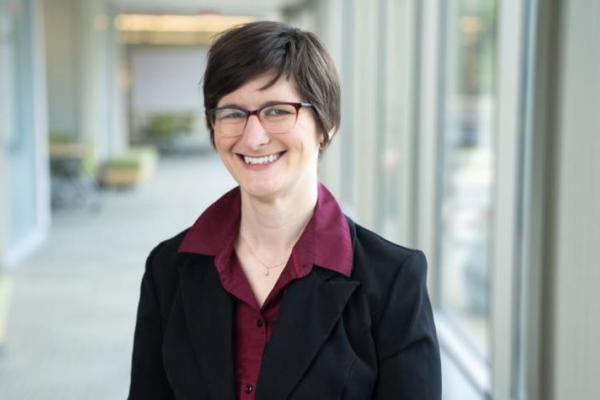Danielle Lyons Featured on LabTV
In the Spinal Cord and Brain Injury Research Center (SCOBIRC) at the University of Kentucky, Adam Bachstetter’s lab studies how glial cells in the brain interact with neurons to support brain health. Bachstetter and Danielle Lyons, a postdoctoral scholar in his lab, recently shared their stories with LabTV.
Bachstetter, who was a pre-law psychology undergraduate at Capital University in Columbus, Ohio, said he ended up in science because of a neuroscience internship. He went on to graduate work at University of South Florida, started postdoctoral research at Northwestern University and then moved to the University of Kentucky to finish his postdoctoral work.
Bachstetter said his favorite part of being a principal investigator is mentoring students: “It’s really great working and interacting with the team, teaching them new techniques and allowing them to explore and grow as scientists, which is really what I’m here for—to help them grow.”
Postdoc Danielle Lyons grew up in Simpsonville, Kentucky, an hour from Lexington. She earned both her undergrad and graduate degrees at UK. “I wanted to be everything, which is still kind of my problem. Anything that was trying to change the world, and I know that’s very corny, but it’s true,” Lyons said.
She ultimately chose to study neuroscience because of her mom, who has trigeminal neuralgia. This chronic pain condition affects the trigeminal nerve, which carries sensation from the face to the brain. For people with this condition, even mild stimulation of their face—like brushing their teeth or putting on makeup—can trigger a jolt of excruciating pain.
“There’s not very good treatment for it. I wanted to try to do something for it,” Lyons said. “When you go into science, you realize you can’t do everything but you can do a small part. And that small part can help someone else do a small part, and someone else do a small part, and it just builds on each other and that’s the magic of science.”
Bachstetter and Lyons are partnering on a three-year study, funded by the National Institute on Aging, which focuses on how glial cells are altered with aging. Bachstetter explains, “We’re at the very early stages of understanding how glial cells become dysfunctional, what makes them not healthy. If we can figure out what are the processes, what are the signals, what’s the biochemistry of this, then we can start to develop ways to target those processes to develop drugs that could potentially treat people who have had a traumatic brain injury or people who are at risk for developing a neurodegenerative disease like Alzheimer’s.”
More from this series Graduate Research
Credits
Produced by Alicia P. Gregory, videography/direction by Chad Rumford and Ben Corwin (Research Communications).



